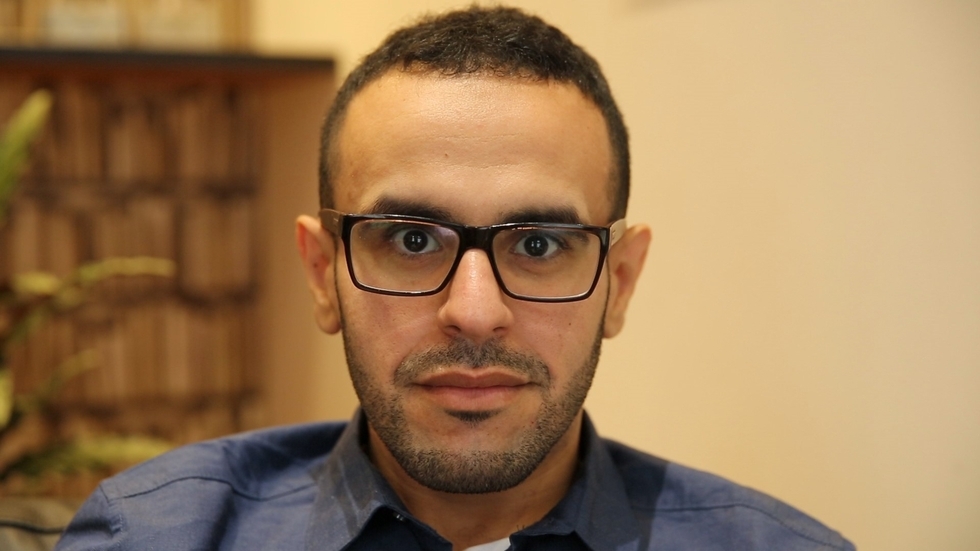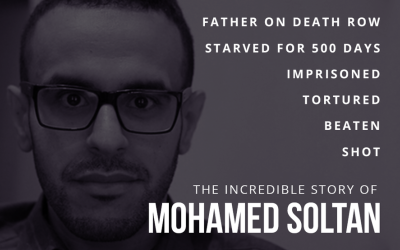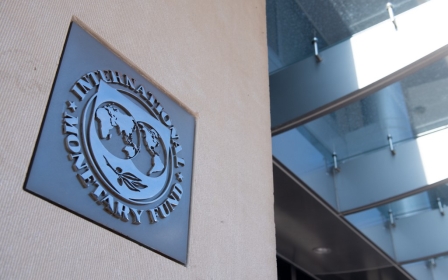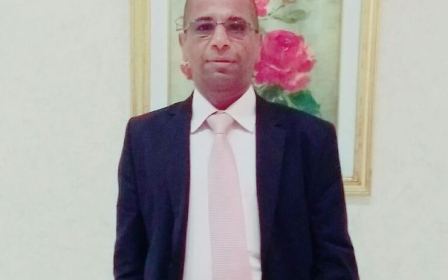US activist sues former Egyptian prime minister over arrest and torture

A US activist and former political prisoner has filed a lawsuit against a former Egyptian prime minister who now lives in Washington DC, arguing he was illegally jailed and tortured as part of a brutal crackdown by Cairo in 2013.
Mohamed Soltan, who spent 643 days in prison, accused former Prime Minister Hazem Abdel Aziz El Beblawi on Monday of direct responsibility for his treatment under the 1991 Torture Victim Protection Act.
In a 46-page complaint, Soltan asserted that he had been shot, beaten and tortured by Cairo's military regime.
"I wanted to help build my country of origin into a place that respected human rights, democratic values and the truth," Soltan said in a statement sent to Middle East Eye.
"For that, I was shot, beaten, sleep-deprived, pressured to commit suicide and forced to listen to my father being tortured.
"The privilege of having US citizenship contributed to my survival of the same fate that more than 60,000 Egyptian political prisoners face today."
The lawsuit also named Egyptian President Abdel Fattah el-Sisi and Egypt's intelligence chief Abbas Kamel as "unsued defendants", along with three other ministers in Sisi's government.
"Today's legal action in US federal court is a demand for justice for Mohamed and for the dignity of political prisoners who have suffered at the hands of Egypt's brutal authoritarian regime that regularly uses torture to quash free speech and dissent in order to cover up its crimes," Eric Lewis, Soltan's lawyer, said in a statement sent to MEE.
"Hazem El Beblawi's criminal behavior was systematic, intentional and malicious.
"We are confident that when the facts of Beblawi's gruesome crimes are revealed before a judge and jury, Mohamed Soltan will finally receive justice."
Torture and beatings
Soltan, an Ohio State University economics graduate, mediated between foreign media and protest leaders at Cairo's Rabaa al-Adawiya square in July 2013.
Thousands of Egyptians had camped in the square to demand the reinstatement of former President Mohamed Morsi who was deposed in a military coup that month by Sisi.
Soltan was arrested shortly after the protests were stamped out and spent nearly two years in prison, 490 days of which he was on hunger strike. He told MEE in a previous interview that he lost a third of his body weight and nearly died 10 times.
His hunger strike gained worldwide attention, adding pressure on the US government to ultimately secure his release.
In the lawsuit, Soltan outlined the multitude of moments in which he was beaten and abused.
In one instance, when Soltan was pleading for medical assistance, he showed a state prosecutor "the metal nails that held his bones together that had begun to tear out of his elbow and through his skin".
'This legal action is not about political or ideological victories, it seeks accountability, deterrence and justice'
- Mohamed Soltan
While imprisoned at the notorious Tora prison in Cairo, the screws in his arm continued to shift, with the slightest movement causing him "excruciating pain".
Egyptian authorities also arrested Soltan's father, a former minister in Morsi's government. They then forced the younger Soltan to listen to his father being tortured and beaten.
"On several occasions, the guards would beat his father within earshot of Plaintiff so that he could hear the cries as the blows rained down upon him," the suit read.
One evening, during Soltan's hunger strike, guards came into his cell and tossed another prisoner, named only as Rida, in with Soltan, telling him he was to care for the prisoner.
Soon after, Rida died in the cell. Despite Soltan's banging on the cell door and screams for help, prison guards did not open the door for another 15 hours and then blamed Soltan for the death. Rida was terminally ill with cancer.
Soltan "was overwhelmed with guilt and continues to have nightmares about that night".
The medical negligence by prison authorities was so harsh that two of Soltan's fellow prisoners, both of whom were doctors, had to operate on his arm without anesthetics or proper medical tools.
Accountability and justice
In the lawsuit, Soltan alleges that Beblawi, who is currently an executive director at the International Monetary Fund (IMF) in Washington DC, "directed and monitored" his mistreatment.
As a serving president, Sisi's status grants him diplomatic immunity from legal proceedings, but Kamel and others risk being served should they visit the US.
"It is my hope that the world does not witness a repeat of the tragic events that happened in Tahrir Square, Maspero and Rabaa and the imprisonment of tens of thousands that followed, and continues today," Soltan said.
"This legal action is not about political or ideological victories, it seeks accountability, deterrence and justice."
While civil lawsuits cannot usually reach foreign governments and leaders, under a 1991 US law, victims of torture are able to sue for compensation from their tormenters under special circumstances.
Under the Torture Victim Protection Act, it states that victims can seek damages under two circumstances: the defendants are in the United States and they are no longer a head of state.
Beblawi, the main defendant in the case, fits under both of those conditions. The ex-prime minister, who was trained as an economist at the Sorbonne, currently lives in Mclean, Virginia and sits on the executive board of the International Monetary Fund in Washington DC.
Soltan's lawyer also called on the IMF to hold Beblawi accountable for his crimes.
"Beblawi's employment by the International Monetary Fund is a stain on that organisation, and this man should be held accountable for his heinous acts in a US court of law," he said.
Middle East Eye delivers independent and unrivalled coverage and analysis of the Middle East, North Africa and beyond. To learn more about republishing this content and the associated fees, please fill out this form. More about MEE can be found here.





